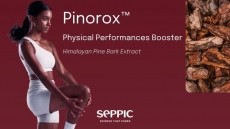NIU’s Global Round-up: Probiotic popularity in Japan, Poland streamlines supplement notifications, and more

Asia
Probiotics most popular non-vitamin / mineral pick for children
Almost 20% of Japanese boys and girls consumer probiotic supplements, making them the most popular non-vitamin and non-mineral dietary supplement for children in the country, according to a recent survey.
Data published in Nutrients indicated that, among supplement users, probiotics consumption was 18.2% and 18.5% in boys and girls, respectively. The prevalence of probiotic supplement use was higher in younger children (one to three years of age, 22.1%; four to six years of age, 33.8%).
The survey of 55,038 mothers of preschool- or school-aged children in Japan revealed that, among all children, 7.6% were currently using dietary supplements, 22.1% regularly took medicine, and 3.2% were concomitantly using dietary supplements and medicine.
Vitamin C was the most popular individual vitamin supplement (7.1%). Individual vitamins were more popular among HS than younger age groups in girls, but no differences were observed between age groups in boys.
For more on this story, please click HERE.
Europe
Poland streamlines food supplement notification system
Poland’s Chief Sanitary Inspectorate is to launch a notification system in February to ‘improve supervision’ of businesses to meet notification requirements of food/ dietary supplements and infant formulas.
“The new system will continue to be used by entrepreneurs marketing foodstuffs qualified as dietary supplements, fortified foods, foods for special medical purposes and infant formulas,” said the Chief Sanitary Inspectorate, according to NutraIngredients-Europe.
“In the future some infant formulas and all-day diet replacement for weight control will also qualify under this foodstuff.”
Europe
Italy sets maximum THC levels in supplements
The Italian Ministry of Health has set the maximum level of tetrahydrocannabinol (THC) permitted in food supplements at 2 milligrams per kilogram (mg/kg).
The decree updates a November 2018 notification to the European Commission (EC) to set maximum THC levels in supplements and foodstuffs containing Cannabis sativa L. derivates.
Maximum levels of tetrahydrocannabinol (THC) were also set for seeds and seed flour (2mg/kg) and oil obtained from seeds (5mg/kg).
Speaking to NutraIngredients-Europe, Luca Bucchini, managing director of Hylobates Consulting, said: “The decree gives legal certainty to the use of some hemp derivatives such as oil from seeds, seeds and hemp flour.
“It also establishes an official analytical method (the one recommended by the EC). It will mean that such hemp derivatives can be used with more certainty, and that robust analytical protocols can be set up.
“Importantly the decree allows the addition of other hemp derivatives with minimal effort, should those recognized as not novel.”


















